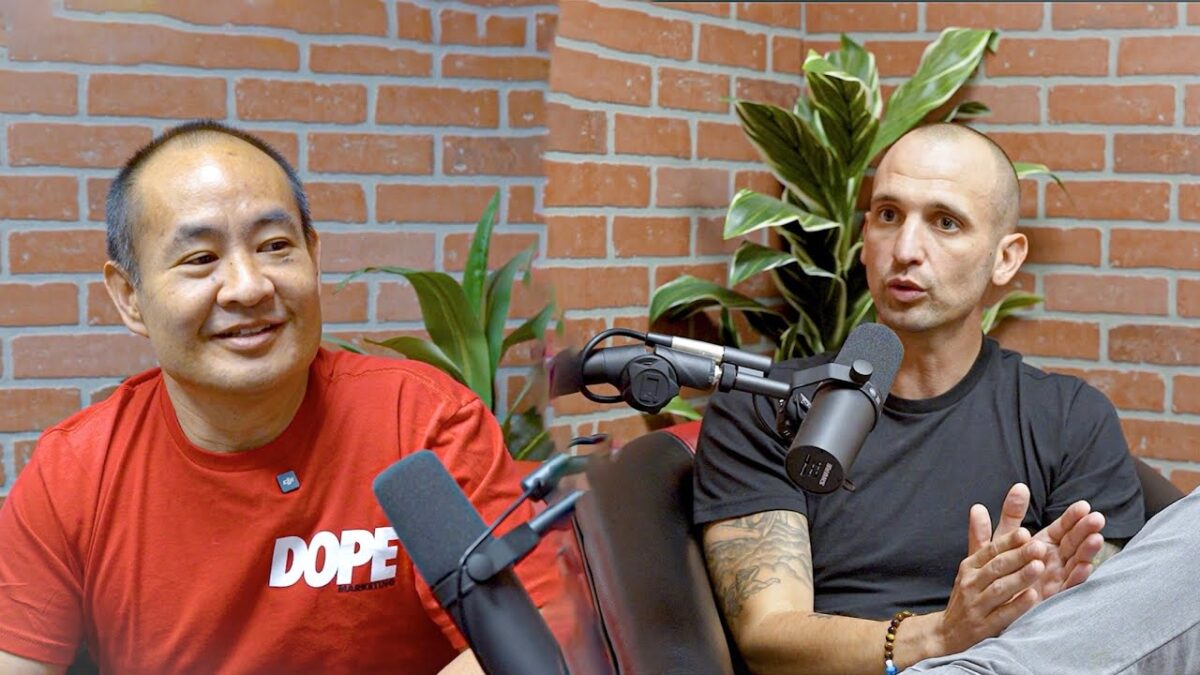Leadership Lessons Behind David Carroll’s $100M Company

I met David Carroll over ten years ago when he was running a local home-service business. He didn’t come from a marketing background. He came from long days in the field, late nights trying to figure out how to get more customers, and an endless curiosity about why things worked the way they did.
That curiosity made him stand out. He wasn’t looking for shortcuts or “secrets.” He wanted to understand. That’s the first thing I teach every entrepreneur inside High Rise Academy—if you stay curious and keep testing, you can build systems that outlast luck.
Today, David runs Dope Marketing, a print automation company approaching a $100M valuation. He’s proof that the right combination of curiosity, consistency, and humility can turn local hustle into scalable infrastructure.
The student mindset
When I first met him, David was experimenting with Facebook ads, CRMs, and every kind of list imaginable. He’d show me screenshots of tests he ran overnight—different targeting rules, landing pages, and lookalikes. He wasn’t trying to look smart. He was trying to learn.
“If someone else has figured it out, I know I can learn it too,” he said. “I’ll just work harder until I understand it.”
That mindset hasn’t changed. Even now, when he’s leading a fast-growing team, he’s still a student first. Every conversation we’ve had over the years—about automation, delegation, or leadership—comes back to the same principle: you can’t teach what you haven’t done.
That’s the heart of High Rise Academy—learn deeply, execute honestly, then teach from proof.
Turning experience into systems
Dope Marketing came from David noticing something most people ignored: print was slow, manual, and stuck in the past. “I realized it wasn’t about ink or machines,” he told me. “It was about timing. If you can tie mail to real events, it becomes modern again.”
So he built software to automate the timing—sending direct mail when jobs close, when reviews post, or when customers go inactive. It’s one of the cleanest examples I’ve seen of someone building systems around real-world signals.
Most people chase novelty. David modernized something old—and that’s often where the biggest opportunity hides.
Building around your weaknesses
David used to often talk about how hard it was to manage people. He’s a visionary—full of energy and ideas—but not a natural manager.
“I finally realized I can’t lead by chaos,” he said. “I need structure.”
He built around that truth instead of pretending it didn’t exist. He brought in an integrator to handle day-to-day operations, limited his direct reports, and started running meetings with written expectations.
That shift—from improvising everything to documenting everything—is one of the hardest lessons for entrepreneurs to learn. It’s also the line between being a founder and becoming a real CEO.
Inside High Rise Academy, we call that scaling yourself out of the bottleneck.
The discipline of transparency
David talks openly about his past, including mistakes that most people would hide. That authenticity is part of why people trust him now. “I’ve been through the worst of it,” he said. “Once you tell the truth, there’s nothing left to be scared of.”
That kind of transparency is a competitive advantage. It builds trust faster than marketing ever could. And it’s what I’ve always respected about him—he owns his story completely.
That’s what I try to teach our students: your real story is your strongest asset. Don’t bury it under branding. Shape it into something that helps others.
From chaos to calm
In the early years, David would text me about how overwhelming it was—dozens of clients, long nights, constant changes. Now, he talks about calm. He prepares when things are good, not when they’re falling apart. “If everything’s smooth,” he says, “that’s when I start asking what could break next.”
That’s the mark of maturity in business. Anyone can react when it’s on fire. The real pros build resilience while things are quiet.
Growth that matters
What I admire most about David isn’t the valuation. It’s the balance. He got sober with his wife. He’s deliberate about his schedule. He still works hard, but he’s not trying to be everywhere or prove everything.
“I’ve been around billionaires,” he told me. “I don’t want that life. I just want to build something real, take care of my people, and be home for dinner.”
That’s what success looks like when you finally define “enough.”
The takeaway for founders
David’s evolution—from running a power washing truck to leading a national software-powered print company—isn’t about luck. It’s about mastering a few timeless habits:
- Learn it before you lead it.
- Build systems that work without you.
- Hire for curiosity, not credentials.
- Be honest about your weaknesses.
- Stay calm when things are going well—and prepare for what’s next.
These are the same principles we teach inside High Rise Academy. The goal isn’t to make you busier—it’s to help you think and operate like a real owner.
If you’ve built something good but know it can run smoother, that’s where the next level starts.
Join High Rise Academy — Learn the systems, leadership frameworks, and operating habits that have guided entrepreneurs like David Carroll to build companies that grow without burning out their founders.
